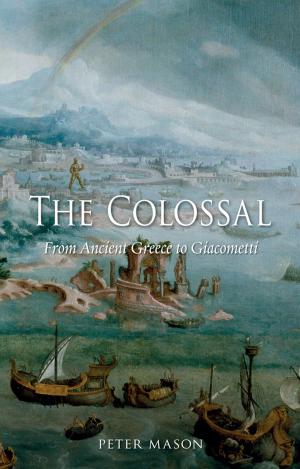Tombs of the Great Leaders
A Contemporary Guide
Nonfiction, Art & Architecture, Architecture, History| Author: | Gwendolyn Leick | ISBN: | 9781780232263 |
| Publisher: | Reaktion Books | Publication: | November 15, 2013 |
| Imprint: | Reaktion Books | Language: | English |
| Author: | Gwendolyn Leick |
| ISBN: | 9781780232263 |
| Publisher: | Reaktion Books |
| Publication: | November 15, 2013 |
| Imprint: | Reaktion Books |
| Language: | English |
A visit to Ankara, Turkey, would include a trip to Anitkabir, the burial site of Turkey’s founder and first president, Ataturk. The massive stone building houses numerous sculptures and a large ceremonial plaza and is surrounded by an elaborate park. Ataturk is far from the only former leader to be remembered by such decorative means. Since the beginning of human history, societies have built tombs and mausoleums to house the remains of people who changed the course of history. These grave sites exist not only as sites of memory for different cultures, but also serve the political needs of subsequent regimes. Tracing the development of the political burial places since the Bronze Age tumuli, Tombs of the Great Leaders explores what attracts pilgrimages to these sites, how politics play out in these locations, how they convey meaning and safeguard a person’s immortality, and how history is commemorated through these structures.
Looking in depth at tombs built in the twentieth and twenty-first centuries, Gwendolyn Leick surveys the history of these modern leaders, their deaths, and the creation of the mausoleums. She traverses the globe, investigating the memorial sites of Communist leaders such as Lenin, Mao Zedong, Ho Chi Minh, and Kim Il-Sung; Fascist rulers Franco and Mussolini; and founding fathers of new nations, including Ziaur Rahman in Dhaka, Mohammed Ali Jinnah in Karachi, and Sun Yat-sen in Nanjing. Leick describes the experience of visiting the sites, the responses they elicit, and the context in which they are viewed today. Combining history, architecture, and travel writing, *Tombs of the Great Leaders *is a revealing study of the self-perpetuation of politicians, despots, and dictators alike.
A visit to Ankara, Turkey, would include a trip to Anitkabir, the burial site of Turkey’s founder and first president, Ataturk. The massive stone building houses numerous sculptures and a large ceremonial plaza and is surrounded by an elaborate park. Ataturk is far from the only former leader to be remembered by such decorative means. Since the beginning of human history, societies have built tombs and mausoleums to house the remains of people who changed the course of history. These grave sites exist not only as sites of memory for different cultures, but also serve the political needs of subsequent regimes. Tracing the development of the political burial places since the Bronze Age tumuli, Tombs of the Great Leaders explores what attracts pilgrimages to these sites, how politics play out in these locations, how they convey meaning and safeguard a person’s immortality, and how history is commemorated through these structures.
Looking in depth at tombs built in the twentieth and twenty-first centuries, Gwendolyn Leick surveys the history of these modern leaders, their deaths, and the creation of the mausoleums. She traverses the globe, investigating the memorial sites of Communist leaders such as Lenin, Mao Zedong, Ho Chi Minh, and Kim Il-Sung; Fascist rulers Franco and Mussolini; and founding fathers of new nations, including Ziaur Rahman in Dhaka, Mohammed Ali Jinnah in Karachi, and Sun Yat-sen in Nanjing. Leick describes the experience of visiting the sites, the responses they elicit, and the context in which they are viewed today. Combining history, architecture, and travel writing, *Tombs of the Great Leaders *is a revealing study of the self-perpetuation of politicians, despots, and dictators alike.















